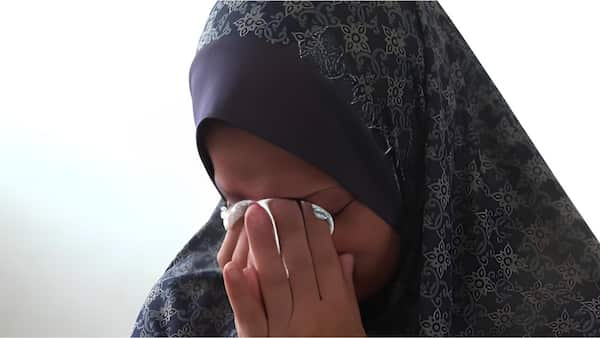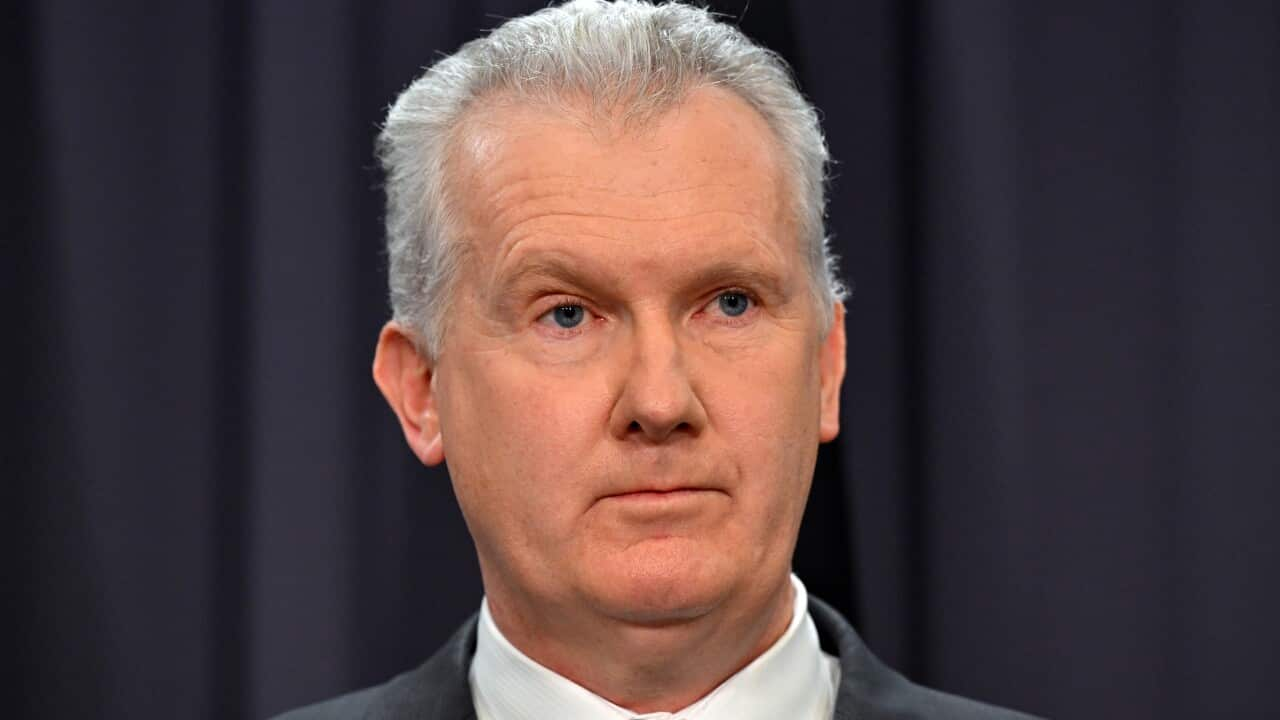Independent senator David Pocock has called for the new immigration minister to announce an allocation of humanitarian visas for people fleeing Gaza as “an act of real leadership”.
More than 7000 humanitarian visas were offered to people fleeing Afghanistan when the Taliban took over and evacuations were organised within a month, the ACT senator said.
There was no cap for Ukrainians being offered humanitarian visas if they could get to Australia, he said.
“But so far none have been offered to people fleeing Gaza,” Senator Pocock told AAP after Tony Burke was sworn into his new portfolio on Monday.
The Refugee Council and Amnesty International have raised concerns about a high number of Palestinians trying to flee Gaza applying for visas being rejected and a lack of humanitarian visas in recent months.
Despite thousands of visas being offered to Palestinians since Hamas’ 7 October attack on Israel and the subsequent war in Gaza, the humanitarian visa had not been opened for them and they had been directed to apply for visitor visas, according to department officials in February.
“People feel like the government is treating Palestinian lives as though they are worth less than Ukrainian or Afghan lives, and that puts a huge strain on social cohesion,” Pocock said.
“Australians want to see our government do more to help those escaping the horror of what is happening in Gaza.”
Muslim Votes Matters national spokesperson Ghaith Krayem said visa processes “should not be dependent on the position of any single politician” given the humanitarian crisis in Gaza.
“The real spotlight on Tony Burke in his electorate stems from the government’s appalling response to the killing and maiming of around 130,000 Palestinians over the past 10 months,” he told AAP.
It follows Labor’s NSW and ACT branches putting pressure on the federal government to act on recognising a Palestinian state, passing motions at their respective conferences.
There has been anger in Burke’s western Sydney electorate of Watson — particularly in Middle Eastern and Islamic communities — at a perceived lack of government action on Gaza and Palestinian recognition.
“I’ve lived my whole life in my community. I love my community, and the community knows who I am,” he told ABC radio when asked about balancing political discourse between tough on national security and further action over Palestine.

